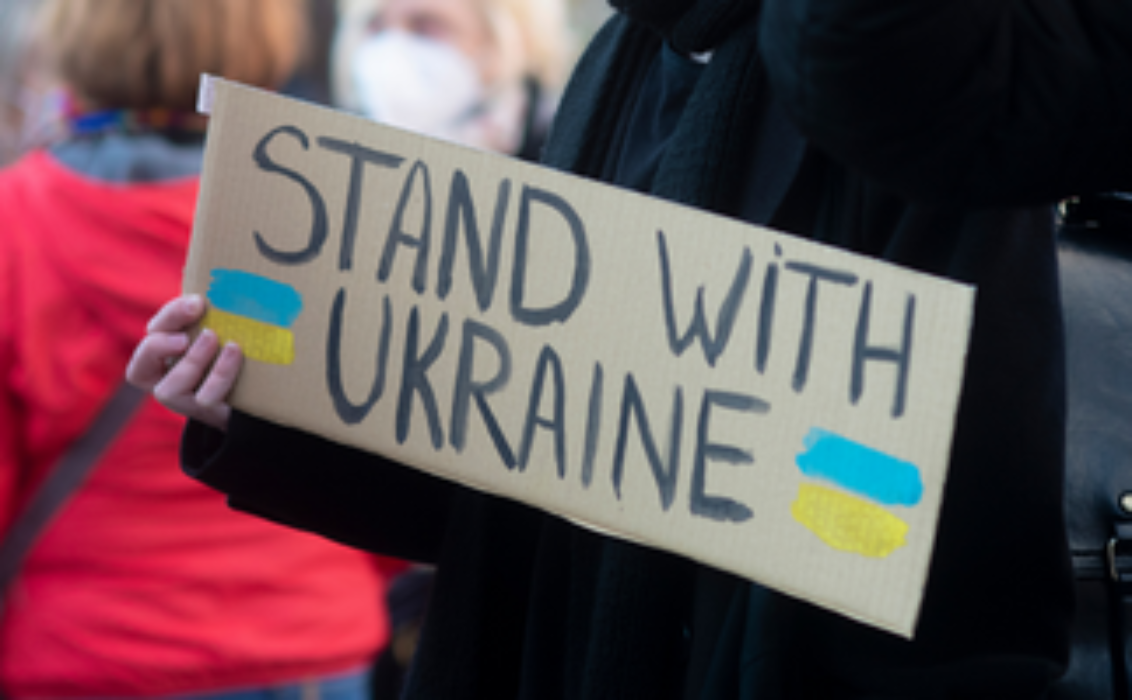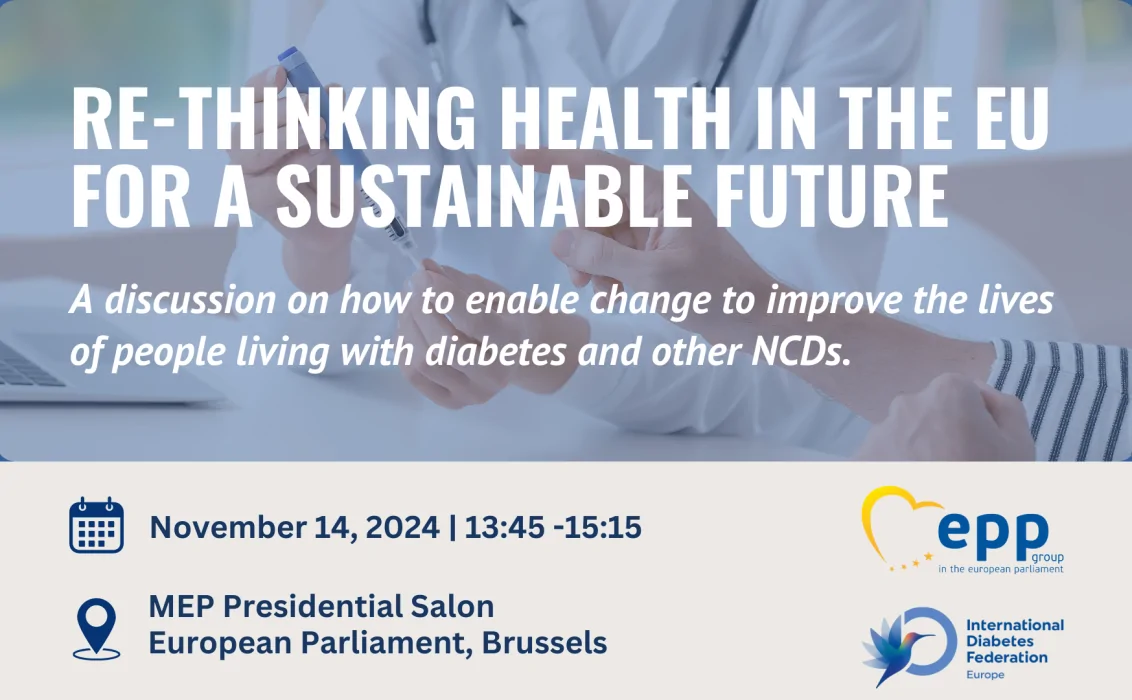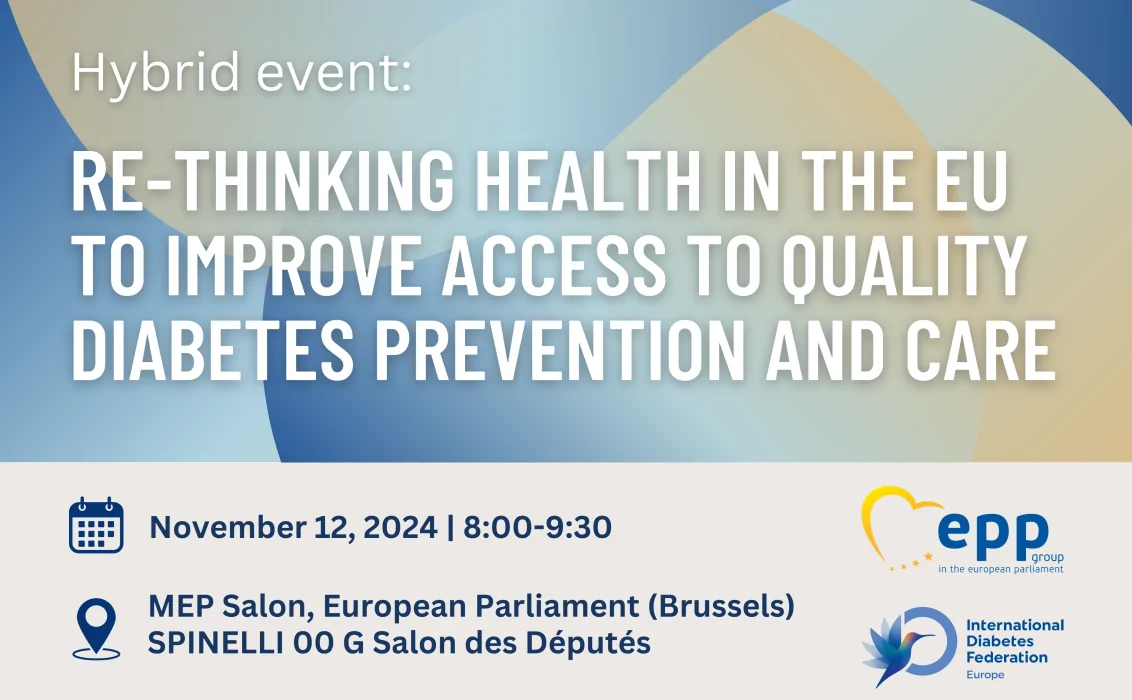Over one month after the start of the war in Ukraine, as the conflict intensifies and some cities have become totally isolated, people living with diabetes (Pwd) are facing increasing challenges.
In addition to shortages of insulin, medicines, supplies, food and water, the bombing of medical facilities is hindering the delivery of specialised care and the support to PwD.
Against this backdrop, the diabetes community in Ukraine is showing extreme determination to keep supporting one another. Meanwhile, the response across other European countries to offer help and support to people living with diabetes in Ukraine and those who have been displaced to other countries has been one of total commitment.
We recently talked to Daniel, a Ukrainian physician, living with Type 1 Diabetes, who since the beginning of the war, has set up free online medical consultations for PwD in Ukraine. His story, among many others, illustrates the strong cohesion of the diabetes community in and out of Ukraine, and calls for increased support to make sure that PwD affected by the war get the support and care they require.
What are the main challenges that PwD are currently facing in Ukraine?
People living with diabetes in Ukraine are under constant stress and we do not have enough diabetes medicines and supplies, in particular insulin and test strips. We also struggle to find healthy food with low glycaemic index which we need to manage blood glucose levels. Receiving support from healthcare professionals is also difficult because many pharmacies are not operating, and people are only able to contact physicians online.
Are people still able to access insulin? We hear that there are more and more shortages. Do you have more information about this?
The situation is changing rapidly. Physicians and volunteers do wonders delivering insulin under fire and bombardment. In cities like Kharkiv, most people still have access to insulin. But they often need to adapt how they administer their insulin. The fear and anxiety also increases, which means that people require more insulin per day than they would under normal circumstances.
The situation is even more alarming in small cities and villages which are temporarily occupied by Russian forces and where it is not possible to deliver food and medicines.
How are PwD coping with lack of supplies?
PwD try to get in contact with physicians and volunteers to receive support and get access to supplies. They also adopt strategies such as cutting down on their insulin and food intake and doing physical activity regularly.
Have PwD had to switch to different types of insulin? Did you have to change your insulin?
Yes. Many PwD have had to switch to different types of insulin which are easier to access. While switching is a life-saving necessity if usual insulins are not available, this change is not trivial, but necessitates substantial adjustments, for example in calculating the appropriate dosage and managing the differences that may result from using a different type or brand. Many of these can only be adequately managed with the help and support of specialised healthcare professionals. But in the current circumstances, this help and support is often lacking.
How are diabetes care and management affected by these disruptions? What do you think will be the long-term impact of the war on PwD?
These disruptions in diabetes care and management will undoubtedly contribute to major psychological distress in PwD and an increase in both acute and long-term diabetes-related complications which, in the worst cases, can be life-threatening.
How can remote consultations be used to overcome the current lack of access to diabetes care in Ukraine?
In my opinion, the aim of online consultation is to help PwD ration their insulin supply by helping them adjust their insulin dosage and recommending doing enough physical activity to reduce insulin intake.
At this stage, it is even more important to conduct online consultations between physicians, volunteers and pharmaceutical companies to create an inventory of all the supplies that PwD in Ukraine need to manage their diabetes.
Would you like to share any additional recommendations as a person living with diabetes and a healthcare professional?
To be prepared to face a situation where no insulin or diabetes medication are available, it is critical that PwD should be given access to all necessary diabetes supplies for a minimum of 1 month. They should also be told about the various strategies they can implement to decrease their blood glucose levels.
Based on the feedback about the needs of PwD that we regularly receive from our trusted parties in Ukraine, and together with our member associations and international partners, we are working to ensure the delivery of medicines and devices that PwD may require in Ukraine and in the countries in which Ukrainian citizens seek refuge.
Given the current challenges in the delivery of humanitarian aid in conflict zones, we have decided to focus on coordinating the efforts directed at supporting PwD in Ukraine, centralising information, and ensuring that support is directed where needed. To facilitate this effort, we have developed the platform “Connect Solidarity”, which gathers information to help Ukrainians living with diabetes understand what support they can get in the country where they are, and how to get it. The platform also highlights the fundraising initiatives endorsed by IDF Europe to support the delivery of medical supplies to people living with diabetes in Ukraine and neighbouring countries, as well as our own fundraising efforts to support the work of our Member Associations that are offering assistance and support to Ukrainian refugees living with diabetes.
As the situation evolves, we will continue working with our partners to develop additional resources and material to support refugees affected by diabetes and healthcare professionals in the region.
To know more about how you can donate, join, or support our efforts, visit
www.connectsolidarity.eu



